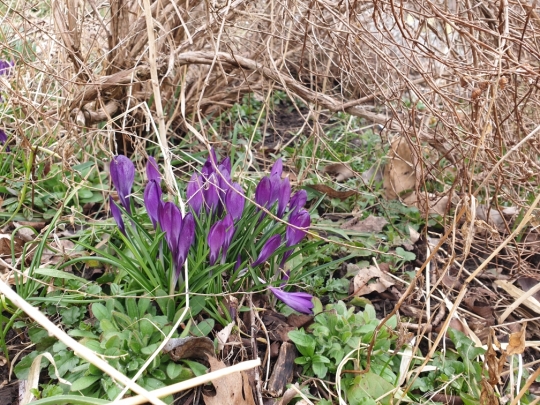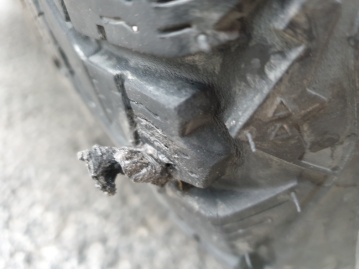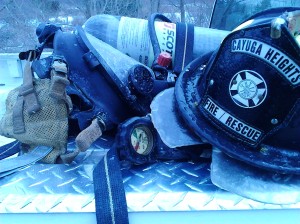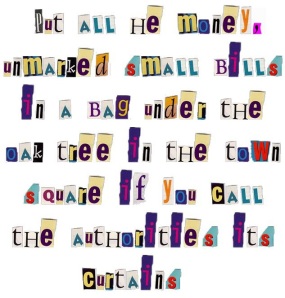Today I want to talk about stress. As a pastor and first responder, I get to live and think in unique nexus points of society and culture.
I teach our department’s Critical Incident Stress Management class (early stage of the spectrum that can end at PTSD), and there are some strategic pieces which might be helpful in the general context of our times.
What is it?
Critical Incident Stress (CIS) is a normal reaction to abnormal events. This is really important. We are not in normal times. Our normal ways of dealing with things don’t apply. For many, normal resources are out of reach. Social supports have vaporized. So let me say straight up: What you are feeling is normal. You are feeling it differently than everyone else – congratulations – you are not a clone! But whether you are non-plussed or freaked out – for you, you are responding in your normal to the abnormal around you. Own it. But it is time for it to not own you.
Why is this in play now?
Two major exacerbating factors of CIS are uncertainty and duration. We are being treated to both! And we can do little about either, which interjects a third factor: a sense of powerlessness. Again, a step to coping wholeness is to acknowledge the crisis and it’s stress.
What can I do!?
There are a host of things you can do to lower the impact and the long term grip of the tensions of these times for yourself and those around you. This is by no means exhaustive, but hopefully a start of constructive thinking and conversation.
First, routine. OK, so you can’t control the uncertainty. You CAN build some certainty in! Start with your sleep times. Maintain consistent bed times and wake times. This will tell your body norms it can use to respond with less intensity to stress. Same for meal structures.
Second, keep a morning routine. Eat usual breakfast stuff at usual breakfast times. Do you have a morning spiritual discipline or psychological refreshment habit? Keep it up!!! Get dressed! (Think about it: usually when you spend the day in your jammies you are what? Sick? What mindset does staying in your jammies put you in?) You are establishing your mindset for the day. Minimize or even eliminate media exposure in this hour.
Third, exercise. It literally burns off stress hormones. It refreshes your immune system. It is good for body and mind.
Fourth, journal. Granted that is a little out of the box, but hear me on this: Your mind wants to hold onto stuff, sort it out, categorize it, and fix it. It’s why you wake up with answers to problems in the middle of the night. Except when you can’t make sense of things let alone fix them. Then your mind just spins. It is distressing and exhausting. BUT, if you write it down – make it part of the end of your day – then your mind can let go. You see, you have “saved the file” for your mind. It knows it won’t get lost, because you wrote it down, and you can always go back to it. Archiving whatever you are experiencing and what you are feeling and thinking about it allows you mind to let go of it. This may take a couple days for the full benefit to kick in, but it does really help!
Fifth, visit your world view. How we view the world around us is something we don’t often take time to process. Do you have categories for good and bad? Blessing and tragedy? Action taking and powerlessness? As a Christian, I have categories for these things in my heart. I don’t like some of them, but I’m not left senseless or purposeless in the face of them. Perhaps you have held or rebelled at a world view inheritance from your youth. Find something that makes sense and perhaps has some historical rootedness. Nothing beats a good foundation.
Sixth, stay away from the destructive stuff. Yeah, the 24/7 news feeds are not your friends. Nor is the endless stream of the freaked out social media. Nor are the pot, porn, and booze anesthetics of our culture. They may dull the moment, but they do nothing to order the inner storm stirred in heart and mind by times like these. In fact, they distort the capacity to process CIS in healthy ways, and defer the reckoning with the inner world while allowing anxiety to metastasize.
Seventh, know your wiring. It is our nature to “tunnel-vision” and to lose perspective in times of stress. Things move out of proportion. People talk about time standing still or not seeing or hearing anything else but the crisis in front of them. It’s a God-given capacity to deal with an immediate thing, but it can spin out of control and distort our lives. Be it an emergency, work stress, current events or even a noble calling (ie. athletes “not hearing the crowd”), tunnel vision is the gift that can become the curse. It is a level of intensity that cannot be sustained. Note the other elements of this essay and keep your perspective and balance.
Eighth, keep good people near. Even if physical proximity is challenging – real time human connections are essential for our mental and spiritual health. You need to process feelings, and you need to care for others. It is part of what makes you human. Own your stuff and engage. This requires greater focus and effort if there are barriers imposed by distancing and vector concerns. Work for it – do it.
A final note – some readers are home with kids and the chaos seems to reign. Teach them the life-skills above and structure it into your day. Kids need structure – it is security to them. Want to minimize you kids’ trauma of a would spiraling apart? Regular bed times, regular meals, and regular activities will stabilize their inner world (including contributing to the housekeeping, chores, meal prep, etc.). And when you are feeling freaked out – good to not make them your confidant. They need you to be the strong one. Share your hard stuff with mature people who can carry it with you. Share your love with your kids!
Yes, this is a season of Critical Incident Stress. It doesn’t have to become more than that!
Steve Felker
Senior Pastor, Christ Chapel, Ithaca
Interior FF, Cayuga Heights Fire Dept





Written
on March 4, 2014